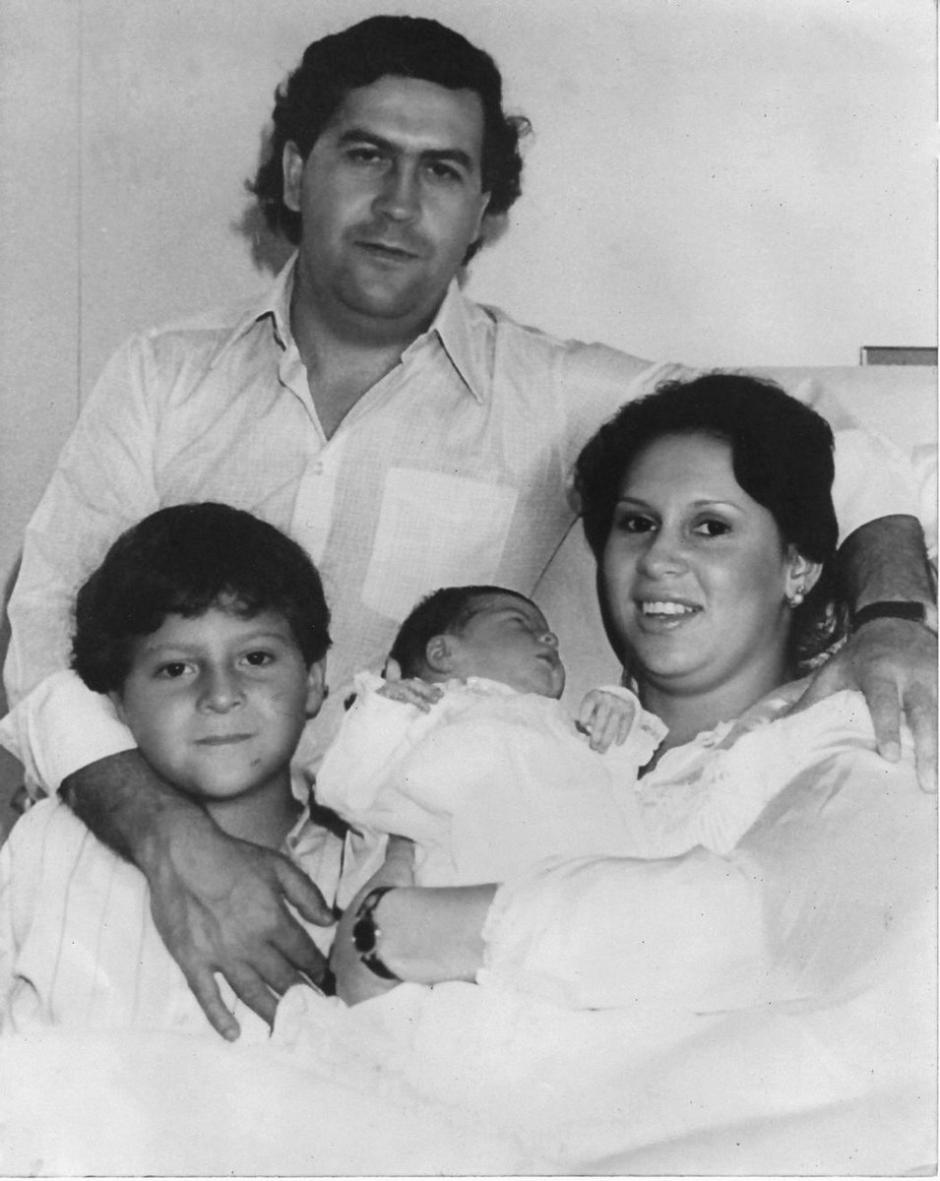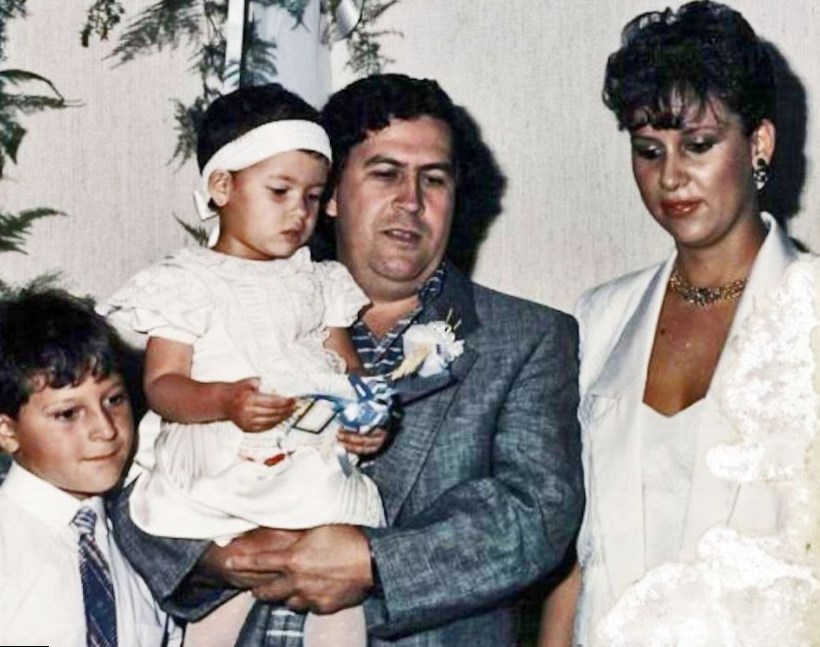The Escobar family is one of the most notorious families in modern history, primarily due to their association with Pablo Escobar, the infamous Colombian drug lord. Their story is a mix of wealth, power, tragedy, and resilience, encapsulating the complex dynamics of family ties intertwined with crime and legacy. With roots that delve deep into Colombia's turbulent past, the Escobar family's narrative is both fascinating and cautionary, reflecting the consequences of choices made in pursuit of power and wealth.
As we explore the Escobar family, we will uncover the layers of their existence, achievements, and the impact they have left on society. The family's influence extends beyond Pablo Escobar, touching upon various facets of Colombian culture, politics, and the global drug trade. The legacy of the Escobar family serves as a poignant reminder of how one individual's actions can reverberate through generations, affecting not just family members but entire communities.
Understanding the Escobar family's history also involves examining the socio-economic conditions of Colombia during Pablo's rise to power. By shedding light on the struggles and triumphs of the Escobar family, we can better comprehend the broader implications of their story, including the ongoing issues related to drug trafficking, violence, and the fight for justice in Colombia.
- Nathan Fillions Father The Man Behind The Star
- Nathan Fillions Family Legacy A Journey Through His Parents Influence
What is the Biography of Pablo Escobar?
Pablo Emilio Escobar Gaviria was born on December 1, 1949, in Rionegro, Colombia. He grew up in Medellín, where he developed a keen interest in business and entrepreneurship from a young age. His initial ventures included petty crime, but as he matured, he transitioned into the drug trade, ultimately becoming the head of the Medellín Cartel. Escobar's rise to power was marked by his ability to exploit the growing demand for cocaine in the United States and other countries. By the late 1980s, he was one of the richest men in the world, with a fortune estimated at $30 billion at its peak.
| Personal Details | Bio Data |
|---|---|
| Name | Pablo Emilio Escobar Gaviria |
| Birth Date | December 1, 1949 |
| Death Date | December 2, 1993 |
| Spouse | Maria Victoria Henao |
| Children | Juan Pablo Escobar, Manuela Escobar |
| Occupation | Drug lord, Businessman |
| Notable For | Leader of the Medellín Cartel |
How did the Escobar Family Influence Colombia?
The Escobar family's influence on Colombia is profound and multifaceted. They were not just involved in drug trafficking; they also engaged in various philanthropic efforts, particularly in their hometown of Medellín. Pablo Escobar built schools, hospitals, and sports fields, which earned him a degree of popularity among the local population. However, this benevolent facade was often overshadowed by the violence and corruption associated with the drug trade.
The family's actions contributed to the destabilization of Colombian society, leading to an era marked by violence, fear, and widespread corruption. The Medellín Cartel was responsible for numerous killings, bombings, and acts of terror aimed at law enforcement and political figures. The Escobar family's legacy, therefore, is a complex tapestry of generosity intertwined with ruthless criminality.
- Understanding Brittney Griner The Truth Behind Her Gender Identity
- Unveiling The Net Worth Of Nathan Fillion A Look At His Wealth
What Happened to Pablo Escobar's Family After His Death?
After Pablo Escobar's death on December 2, 1993, his family faced immense challenges. His widow, Maria Victoria Henao, and their two children, Juan Pablo and Manuela, were thrust into a life of fear and uncertainty. The family had to navigate a world where they were often viewed with suspicion and hostility due to their association with one of the most notorious criminals in history.
Initially, the family sought refuge in various countries, including Germany and the United States, before eventually settling in Argentina. Despite the stigma, they attempted to rebuild their lives. Juan Pablo, who later changed his name to Sebastian Marroquín, became an architect and author, working to distance himself from his father's legacy.
How Did the Escobar Family Maintain Their Wealth?
Despite the downfall of Pablo Escobar, the Escobar family managed to retain a significant portion of their wealth. This was achieved through various means, including real estate investments, business ventures, and maintaining connections within the Colombian elite. The family's ability to adapt and evolve in the wake of Pablo's death has allowed them to preserve their assets and continue living relatively comfortably.
Moreover, the Escobar family has also sought to reshape their public image. Juan Pablo, in particular, has been vocal about his father's criminal legacy and has worked to promote messages of peace and reconciliation. His efforts to share his story through books and documentaries have provided a platform for addressing the complexities of being an Escobar.
What Legacy Does the Escobar Family Leave Behind?
The legacy of the Escobar family is a contentious topic. On one hand, they are remembered for their contributions to society through charitable endeavors, while on the other, they are synonymous with violence and drug trafficking. The duality of their legacy raises important questions about morality, ethics, and the impact of crime on families and communities.
As Colombia continues to grapple with the aftermath of the drug trade, the Escobar family's story serves as a poignant reminder of the complexities of human nature. The family's journey reflects the struggles of many who are caught in the crossfire of crime, poverty, and the quest for identity.
How is the Escobar Family Perceived Today?
Today, the Escobar family is perceived through various lenses. For some, they remain a symbol of the dark side of the drug trade, representing the devastating consequences of addiction and violence. For others, they embody resilience and the ability to rise above a tumultuous past. The media's portrayal of the Escobar family, particularly through television series and documentaries, has also shaped public perception, often romanticizing their story while glossing over the harsh realities.
What Can We Learn from the Escobar Family's Story?
The story of the Escobar family offers valuable lessons about the consequences of choices and the complexities of human relationships. It highlights the impact that one individual's actions can have on an entire family and community. As we reflect on their journey, we are reminded of the importance of accountability, the need for reconciliation, and the enduring quest for identity amid adversity.
In conclusion, the Escobar family remains a significant part of Colombia's history, embodying a narrative that is both cautionary and instructive. Their legacy serves as a powerful reminder of the intricate dance between power, wealth, and the human experience, encouraging us to explore the depths of our own choices and the paths they carve for future generations.


